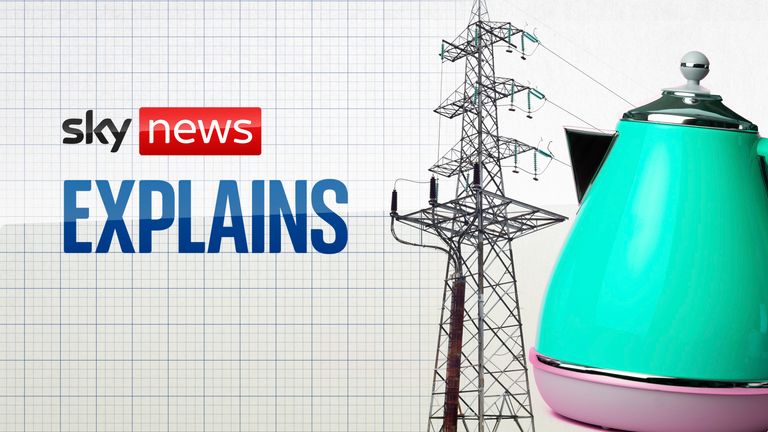Bulb administrators line up auction for stricken energy company
A leading US investment bank is to be hired to find a buyer for Bulb, the stricken energy company, as it prepares to be placed into formal insolvency proceedings this week.
Sky News understands that Bulb’s administrators-in-waiting are expected to appoint Lazard within days to run an auction of the business.
An executive at one energy supplier said they anticipated “significant” interest in acquiring Bulb once it has been unshackled from hundreds of millions of pounds of financial liabilities.
It has approximately 1.7 million customers, making it the UK’s seventh-biggest supplier and by far the largest of the more than 20 to have collapsed since the start of August.
Lazard had been advising Bulb on fundraising options for several months, and conducted talks with a range of prospective bidders, including Octopus Energy, OVO Energy and Shell Energy Retail.
Some or all of those companies are expected to table fresh offers to buy Bulb out of administration.
The energy company executive said the prospect of taxpayers funding Bulb during the winter months, coupled with the possibility of more normalised wholesale gas prices by next spring, would make Bulb an attractive takeover opportunity.
That raises the prospect of taxpayers funding Bulb for several months until a buyer for its business or assets is finalised, the executive added.
Ofgem, the industry regulator, is lining up Teneo Restructuring as special administrator to Bulb – the first test of a new insolvency regime designed to protect the customers of a large energy company failure.
:: Listen and subscribe to The Ian King Business Podcast here.
The court-sanctioned appointment of the special administrator could happen as early as Tuesday or Wednesday.
Confirming a Sky News report of its looming collapse on Monday, Bulb said: “When we started exploring fundraising options, we were delighted to receive lots of interest from investors to fund our business plans and future growth.
“However, the rising energy crisis in the UK and around the world has concerned investors who can’t go ahead while wholesale prices are so high and the price cap-designed to protect customers-currently means suppliers provide energy at a significant loss.”
The remaining obstacle to the formal appointment of administrators has been discussions with Bulb’s secured creditor, Sequoia Economic Infrastructure Income Fund, which has an outstanding £55m secured loan to Bulb’s parent company, Simple Energy.
In a stock exchange statement, Sequoia said it had “learnt via a press article that Bulb Energy Ltd is supportive of entering into the Special Administration Regime established by the Energy Act 2011”.
“If this were to occur, the Investment Adviser notes that the parent company of Bulb, Simple Energy Limited (“Simple”), would enter into normal administration.”
It was unclear on Tuesday how the discussions between Sequoia, which has been seeking repayment of its loan prior to Bulb’s collapse, and other stakeholders would be resolved.
A government spokesperson said in response to news of the development: “We have agreed with Ofgem on the appointment of special administrators for Bulb and are taking this forward in the quickest possible timeframe.
“The Special Administration Regime is a long-standing, well-established mechanism to protect energy consumers and ensure continued energy supply when a supplier fails.
“Bulb customers do not need to do anything, there will be no disruption to supply or current energy prices, and credit balances are protected.
“Our priority remains protecting consumers, which is why the Energy Price Cap will remain in place to ensure millions of customers pay a fair price for their energy this winter.”
Bulb is too large to go through Ofgem’s Supplier of Last Resort (SOLR) process – the method by which all of the UK’s other collapsed energy companies have been resolved in recent months.
In the SOLR process, a company’s operating licence is removed and bids are sought from other industry players for its customer base, with losses incurred by the acquirers of those customers then recouped through an industry levy.
Under the SAR, the administrator has a legal duty to consider the interest of customers, unlike a conventional insolvency process where the primary duty is to creditors.
Bulb and Lazard declined to comment.






